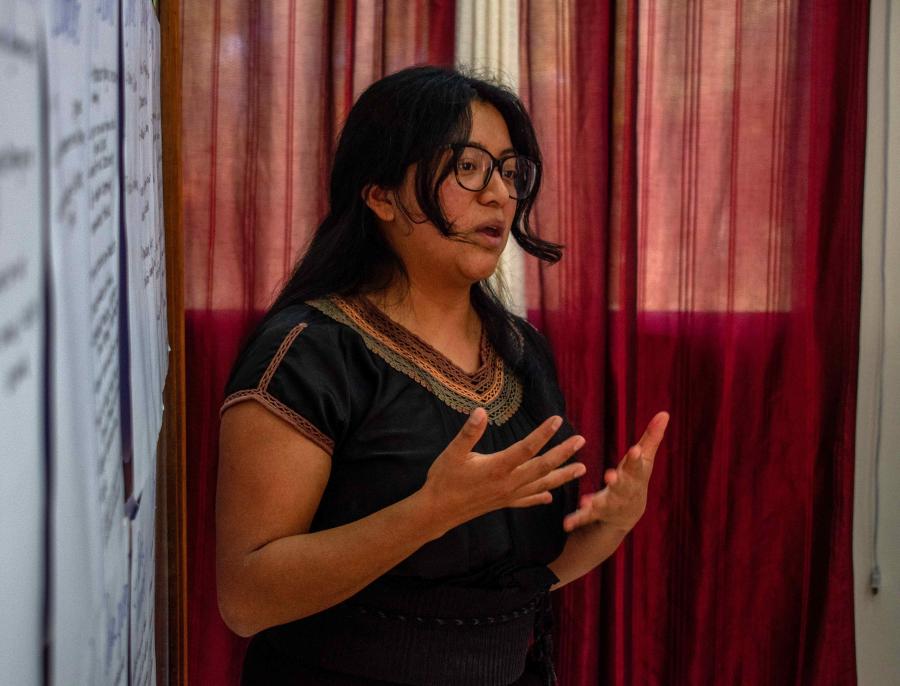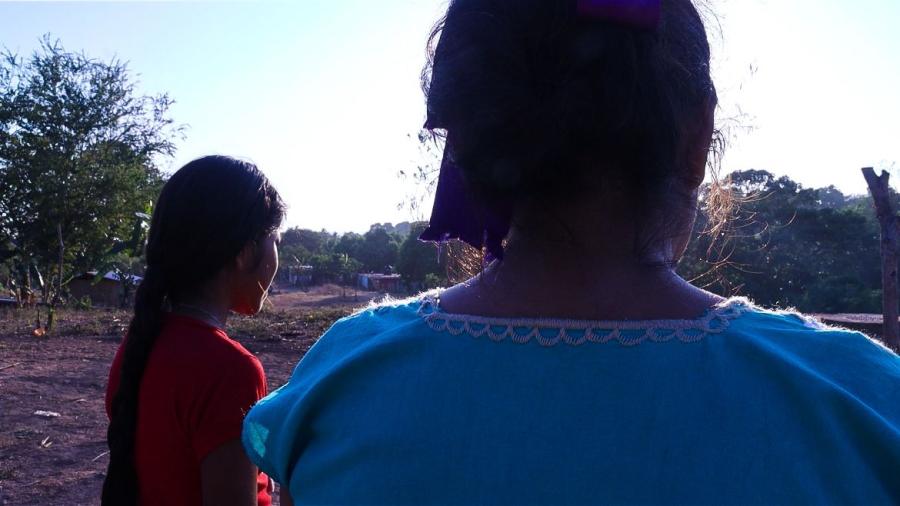
Cultural Survival Youth Fellow, Fermín Morales Hilario (Nahuatl), 22, is from Kalman Nimos in the mountains of Mexico, where his family grows corn, beans, and squash. His family is Náhuatl but his mother tongue was not passed down to him as his grandparents did not teach his father and mother to speak it. Fermin has five siblings and is the only one in his family to attend university. He aspires to finish his studies. As a student, Fermin started participating at his local community radio station, Radio Chilate, and is deepening his experience by creating musical programs and editing photos and videos. He wants to perfect his skills and keep learning.
His fellowship project, “Our Traditions, Day of the Dead,” seeks to strengthen the traditions and practice of the Day of Dead (Dia de Los Muertos) in Indigenous communities and teach youth and children about the importance of maintaining these traditions through radio. Fermin created radio content on the meaning of the festival based on interviews with Elders from two different communities. He also organized a community dialogue with Elders, youth, and children to strengthen intergenerational knowledge transfer and relationship building. Fermin documented these interactions through video and audio recordings.

Fermin faced several challenges interviewing Elders in his community about the Day of the Dead, sometimes due to distrust, due to past experiences of other people misusing the content shared, and also due to language barriers. Many Elders do not trust outsiders and even with locals, Elders commented that they sometimes felt their trust was abused after sharing their knowledge. Fermin interviewed an Elder who was hesitant at first but agreed because it was material that was going to be shared with children in the community to make them aware of their traditions and customs related to the Day of the Dead and passing this knowledge on was important to him.
Elder Señor Ernesto shared: “My father always told me that our customs must be respected. Once you accept to receive them at home, it is a commitment that one acquires. If you live within the community, you will have to prepare the land to plant the cempasuchil (marigold) flowers, something very essential for these dates. Corn and pumpkins, among others, have to be prepared a month in advance. The other thing is that on the eve, we do not do heavy work because many accidents can happen later if one does not respect the sacred dates on which the souls return to the world of the living.”

The COVID-19 pandemic has affected how the Day of the Dead is celebrated. During the pandemic, very few people sold Day of the Dead supplies due to health restrictions. Merchants were not able to sell in very large spaces and this impacted their sales. This situation affected the custom. “Five years ago it was incredible, they sold everything on the sidewalks. They adorned themselves with many products and the pleasant aroma that characterizes the tradition of the Day of the Dead,” Fermin shares.
Last year there were still not many celebrations. In addition, customs and ways culture are expressed vary from family to family. Migration is also impacting the practice of the custom. In the interviews, Fermin discovered that there is much knowledge that is difficult to recover due to the lack of practice. Over time it is lost with the Elders who have left for the other world.

Other factors have also complicated the creation of clothes for the Day of the Dead. Climate change is impacting the growth of marigolds and other flowers used for altars. A lady at the market explained that it was because of the late rains that the flowers bloom late. The seasonal blossoming of the flowers used for the Day of the Dead has shifted.
From conducting these interviews, Fermin learned the importance of continuing the work to recover Nahuatl traditions and customs of the Day of the Dead among others. His work has contributed to strengthening his community’s roots for future generations. There is a shared responsibility to maintain a spiritual connection with our ancestors to ensure that they never leave us but continue to communicate with us in other unforeseen forms. Fermin shares, “We learned that it is very important to recover or learn from the vision of the tatas about the cultures of the peoples (me'phaa). On the technical side, in this project the women radio broadcasters learned more about editing, raising the volume of the audio, and editing the audio. They overcame their fear of editing programs and experimenting with the audio.”

Fermin shared another quote from Elder Señor Ernesto about the importance of continuing to observe and practice the Day of the Dead, “ “They say that the living depend on souls for long life and blessings. Keep in mind that the family returns, respect the sacred dates for them” (Ten en cuenta que la familia regresa, respeta las fechas sagradas para ellos).



